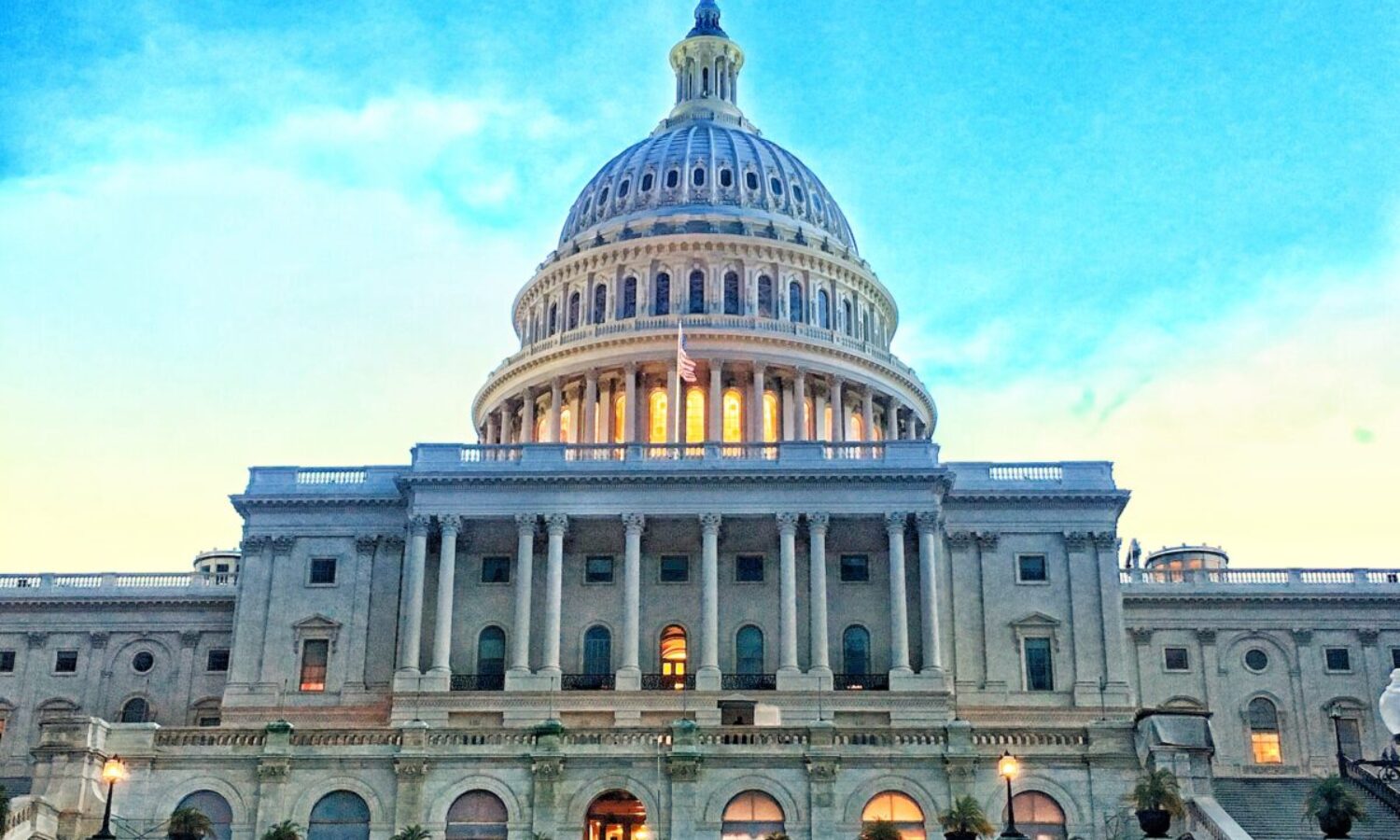i2Coalition January 2021 Legislative Brief
Your brief update on Internet policy issues
OUTLOOK
Biden Presidency & New 117th Congress. The United States transitioned Presidential power from Donald Trump to Joseph Biden on Inauguration Day, January 20, in Washington, DC. Breaking with tradition, President Trump, who was impeached on January 13 by the U.S. House a second time (with 10 Republicans voting yes) on the grounds of inciting the January 6 violent attack on the Capitol and insurrection against the U.S. government by pro-Trump supporters, did not attend Biden’s swearing-in which occurred just before noon. Kamala Harris was sworn in shortly before Biden as the nation’s first female, African American and Asian American Vice President. Former Vice President Mike Pence attended the inauguration. Biden’s inauguration as the 46th U.S. President occurred outside the U.S. Capitol complex under extraordinarily heavy security provided by more than 20,000 National Guard troops and law enforcement officers.
Democratic control of the U.S. Senate also was confirmed on January 20 with the swearing in of the two new Georgia Democrat Senators Raphael Warnock and Jon Ossoff, and the swearing in of Kamala Harris as Vice President, enabling her role as tie-breaker in the 50-50 U.S. Senate. The U.S. House of Representatives is also narrowly controlled by Democrats with Nancy Pelosi elected again as Speaker for what may be her final term serving in this leadership role.
In preparation for the new Administration the U.S. Senate has begun confirmation hearings for Biden’s Cabinet and other nominees. Senate leaders are working out how to balance confirmations and legislative work and potentially conducting an impeachment trial of former President Trump after the House sends the single impeachment article to the Senate. House impeachment managers for the impeachment trial have been selected.
The tense national mood resulting from the dramatic, tragically violent lead-up to the Biden transition has been intensified by worsening U.S. COVID case numbers and fatalities and mounting frustrations with the complexity of rolling out available vaccines on a priority basis nationwide. In his Inauguration Day speech, President Biden promised to seek unity and to be committed to truth-telling. Post-election Biden announced that his Administration initially will focus on four priority areas: COVID-19; economic recovery; racial equity; and climate change. As a first step, Biden has outlined a $1.9 trillion COVID economic relief package and wants to achieve delivery of 100 million vaccination doses within the first 100 days of his Administration. The Biden Administration plans to launch a national vaccination program to vastly expand sites for equitable vaccine distribution. Biden intends to propose step two of his economic recovery and job creation plan in his State of the Union speech in February in which he will detail proposed investments in infrastructure, job training, manufacturing, and clean energy, among other areas.
Tech Policy Priorities. In response to the shocking violence and death that occurred at the Capitol on January 6, U.S. policymakers are beginning a deep probe of the factors leading to the attempted insurrection. In Congressional hearings and other fora, they will assess the role of major social media platforms in spreading disinformation about the election results, including what reporters have characterized as the “corrosive power of Trump’s false online screeds.” After the January 6 Capitol attack, Trump was banned from several major social media platforms based on concerns about the risk of more incitement of violence.
- Section 230. Major social media platforms and tech companies will be under intense scrutiny by Biden Administration officials and Democrat leaders in the House and Senate who will, among other things, rethink and consider limiting the Section 230 immunity protections through new legislation. House and Senate Republicans will also continue to scrutinize and seek to rein in major social media platforms and large tech companies on the issue of alleged political bias and censorship and suppression of some Republican viewpoints online. A number of Section 230 bills from the prior Congress have already been re-introduced by House Republicans. These actions, which have growing bipartisan momentum, could have broad, negative implications for entities of every size, including small and medium businesses, libraries, and educational institutions, who have relied upon Section 230 liability protections in their online operations.
- Antitrust/Competition. Antitrust enforcement and competition policy for the tech sector will be a key priority as incoming Biden Administration officials take over management of the Google and Facebook federal lawsuits and consider next steps. Democrat leaders in Congress may also lead a push to update antitrust laws.
- Federal Privacy. The 117th Congress is expected to consider debating a comprehensive federal data privacy law but solutions to sticking points in the debate (preemption and private rights of action) are still unclear. Commerce Department staff expect to continue discussions with EU officials about transatlantic data flows.
- Copyright/IP. With Democrats in control of the Senate and House, there will be continued interest in DMCA reform but work may proceed at a more deliberative pace in both bodies with the focus limited to areas in which general consensus begins to emerge. The IP subcommittees may focus as well on China and IP theft and patent matters.
- Broadband. Bipartisan support for expanding broadband access in rural America and underserved areas has grown as a result of COVID-19 and the need for rapid, widespread shifts to online work and education. “Universal broadband” is part of the Biden economic recovery and infrastructure agenda.
For more in-depth updates on Internet policy that impact your organization, please contact us about joining the i2Coalition.


